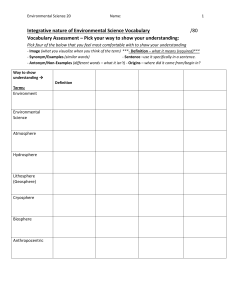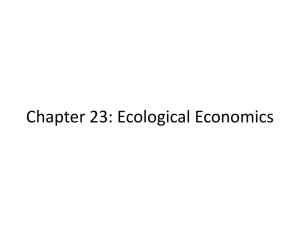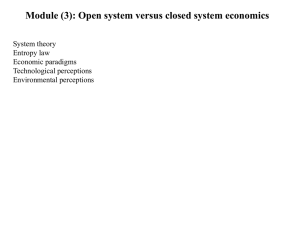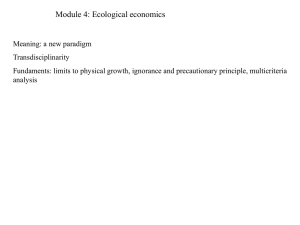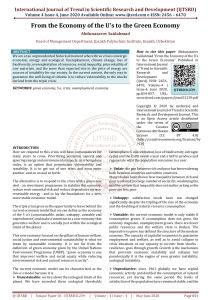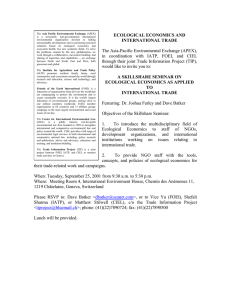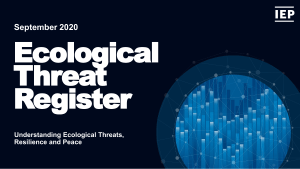What is ecological economics?
advertisement
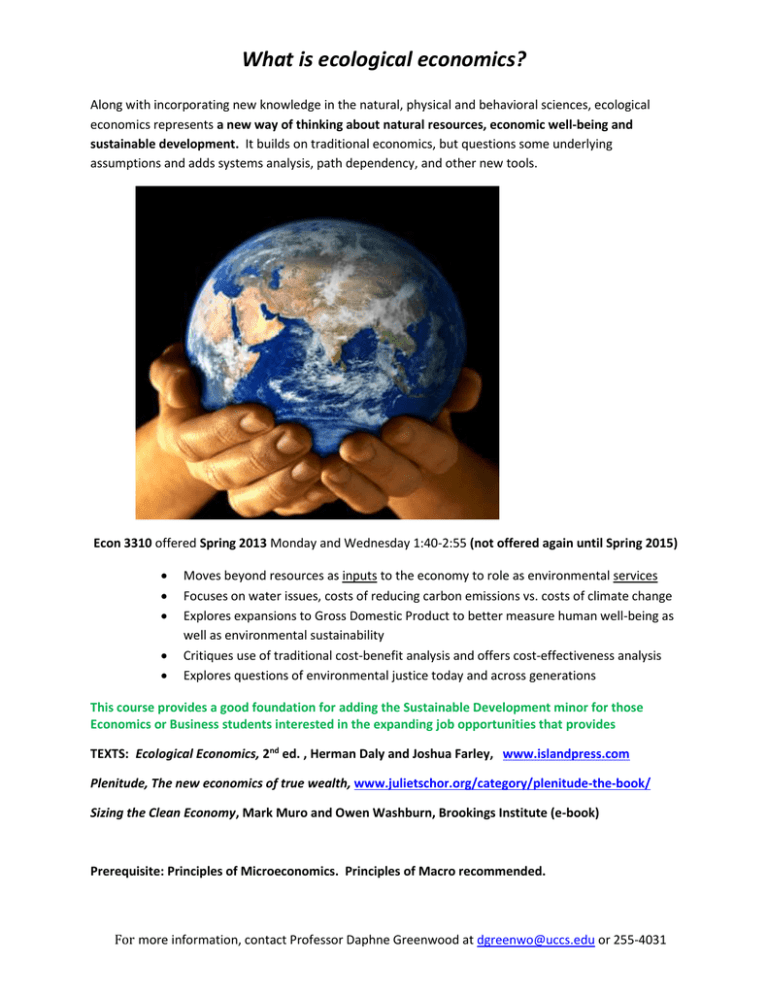
What is ecological economics? Along with incorporating new knowledge in the natural, physical and behavioral sciences, ecological economics represents a new way of thinking about natural resources, economic well-being and sustainable development. It builds on traditional economics, but questions some underlying assumptions and adds systems analysis, path dependency, and other new tools. Econ 3310 offered Spring 2013 Monday and Wednesday 1:40-2:55 (not offered again until Spring 2015) Moves beyond resources as inputs to the economy to role as environmental services Focuses on water issues, costs of reducing carbon emissions vs. costs of climate change Explores expansions to Gross Domestic Product to better measure human well-being as well as environmental sustainability Critiques use of traditional cost-benefit analysis and offers cost-effectiveness analysis Explores questions of environmental justice today and across generations This course provides a good foundation for adding the Sustainable Development minor for those Economics or Business students interested in the expanding job opportunities that provides TEXTS: Ecological Economics, 2nd ed. , Herman Daly and Joshua Farley, www.islandpress.com Plenitude, The new economics of true wealth, www.julietschor.org/category/plenitude-the-book/ Sizing the Clean Economy, Mark Muro and Owen Washburn, Brookings Institute (e-book) Prerequisite: Principles of Microeconomics. Principles of Macro recommended. For more information, contact Professor Daphne Greenwood at dgreenwo@uccs.edu or 255-4031
